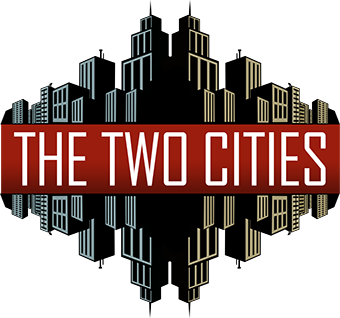I’m not sure what I thought I would find when I stepped inside the gymnasium the last Saturday night in March. I know that I was hoping to find my sister and enjoy the show–but I considered neither of those very likely given the crowd of people crammed inside the gym and the fact that I hadn’t been to a concert in over five years. As far as concerts go, I had thought that they […]
“Therefore go and make disciples of all the nations.” I think anyone who has spent time in the church has had a life filled with experiences where the execution of both new disciple making and disciple deepening have been found dreadfully wanting. So, how do we move forward from here? In the last few decades, many oft-labeled “emerging” church leaders have sought to champion new approaches to engaging a post-modern generation with the Gospel. One […]
You can’t love God and hate homosexuals. On the contrary, loving God means loving gays. Really, truly, honestly loving them. (Are you listening, Westboro Baptist cult?) That doesn’t mean voting “no” on Proposition 8 or waving rainbow flags in the nearest pride parade. No, biblical love for gays is far more extraordinary. It’s a Christ-centered love that meets them in their brokenness and offers the same grace that God extended to us, even when we […]
A friend of mine, whom I love for his warm but temperate heart, expresses the concern that the Christian faith, once normalized in the prevailing culture, will suffer a weakened witness. In many places a normalized church has been a worldly church, and one does not wish to see (for instance) the Church in China suffer the degradations of the Church of England. We agree that the word of God is infallibly applicable to all, […]
Sound hermeneutics requires an understanding of how communication works. The Bible, after all, is God’s authoritative communication to us. There are three components of communication: words, genre, and message. “Words” refers to what we say; “genre” to the way we say it; and “message” to the reason for saying it.[1] When we decide to communicate, we first determine the point we want to make (message), then the way we want to say it (genre), and […]
Incapable of fully communicating the nuances of a fine wine with mere words, connoisseurs have at times resorted to using analogous terms like “tastes like a meadow” or even “tastes like a damp sock” (uh?) to describe its elusive and difficult-to-pinpoint qualities. Along similar lines, if someone were to ask me to describe Lecrae’s latest album Gravity, I would have to liken it to a slab of jet black asphalt that’s just been doused by a […]
Dedication: This article is dedicated to my lovely wife who has walked through a dark valley with me; to Dave Stelling who has counseled me through much despair; to pastor Chris Lent who has been a faithful shepherd of my soul in turbulent waters; to my family and church family (both in Colorado and Florida) who have prayed for me relentlessly and finally, to all those who have faced debilitating anxiety and panic. May you […]
This Labor Day, under the touching glow of a setting pacific sundown, invest some time reading a little primer entrusted to be by a dear friend- A Biblical Case for Natural Law, by Westminster Professor of Systematic Theology and Christian Ethics David Van Drunen. You’re probably thinking this post is a review of this book. Or, at least it’s on the subject of Natural Law. It’s not. For the record, after reading the book, I […]
Most of the readers of this blog will be familiar with the Law/Gospel distinction that is present in the New Testament. While this distinction grew out of a particular set of controversies involving a particular law code and its relevance to a particular cultural situation (something that we Protestants often forget to our own exegetical detriment), the New Testament also occasionally abstracts what we might call the principles of Law and Gospel as two ways of […]
In David Bartholmae’s article “Inventing the University”, he states that in order for the student to succeed in the university as it was currently (1985) constituted, the student must, “invent the university by assembling and mimicking its language, while finding some compromise between idiosyncrasy, a personal history, on the one hand and the requirements of convention, the history of discipline, on the other.”[1] The “mimicry” of language and terms in the academy is one that […]












Recent Comments